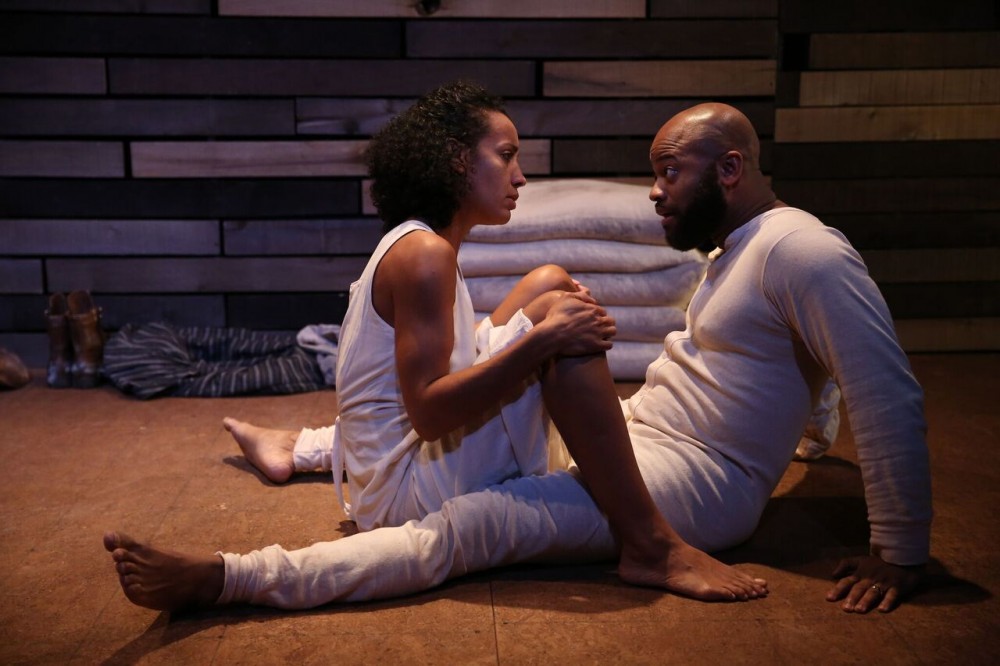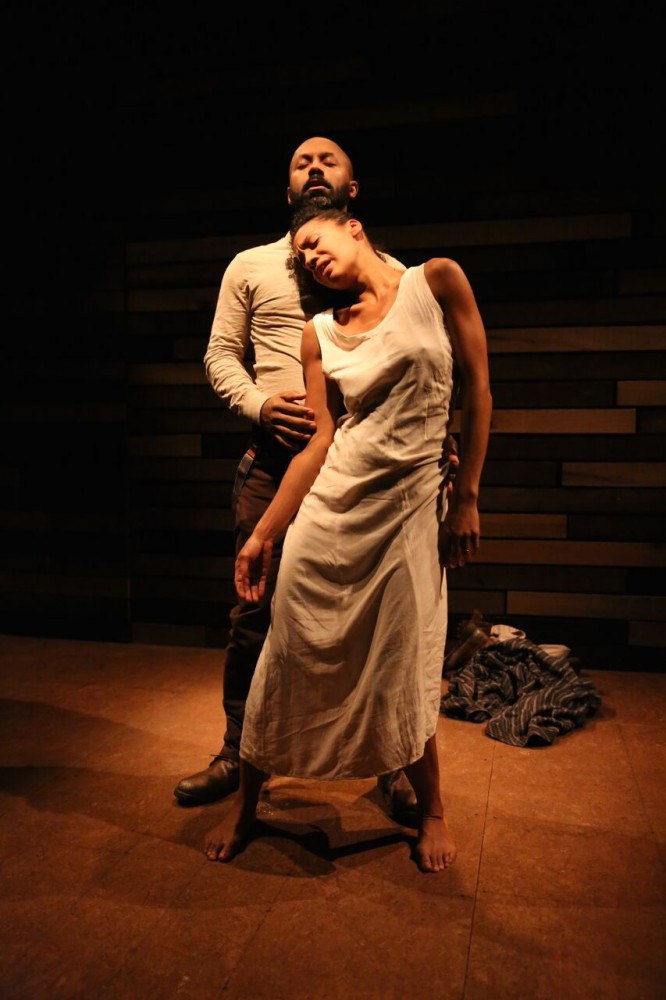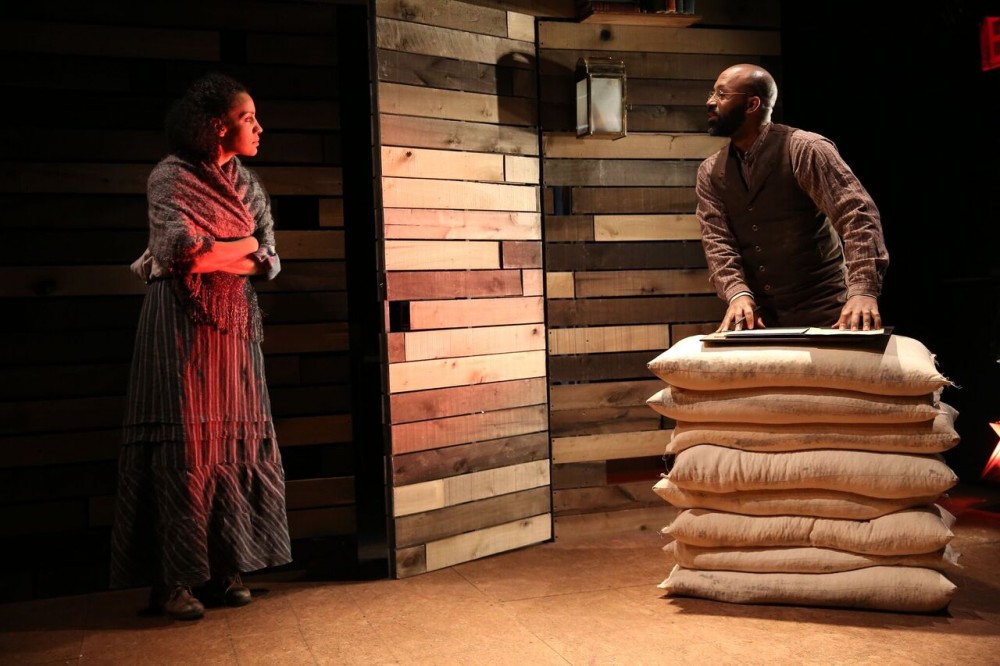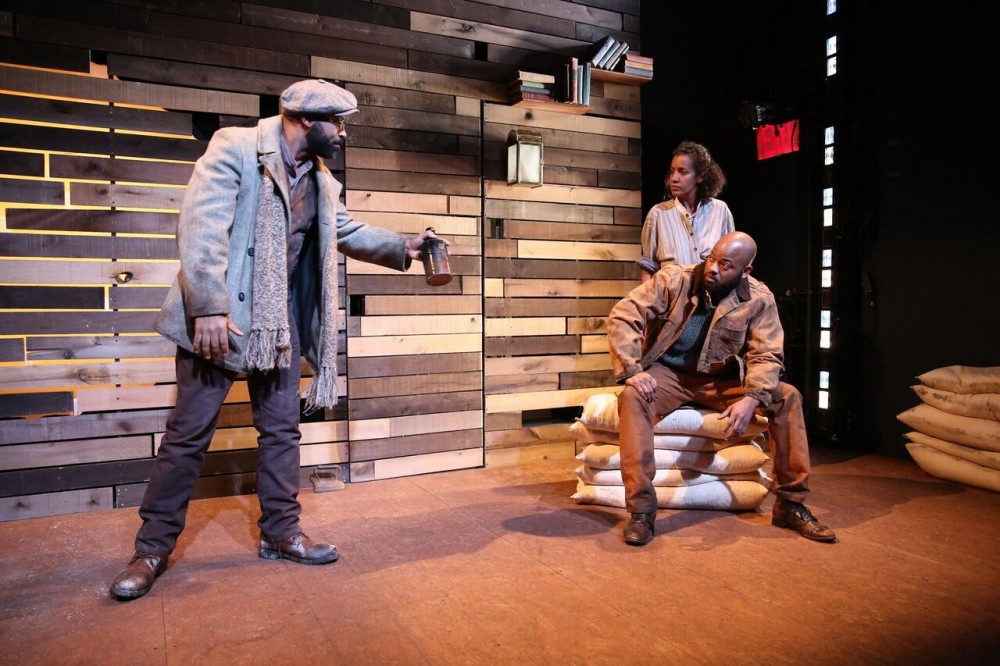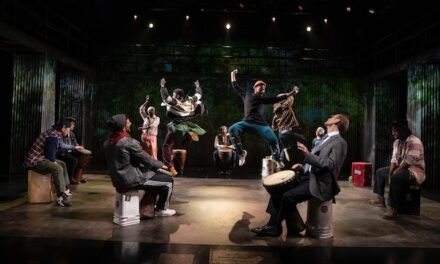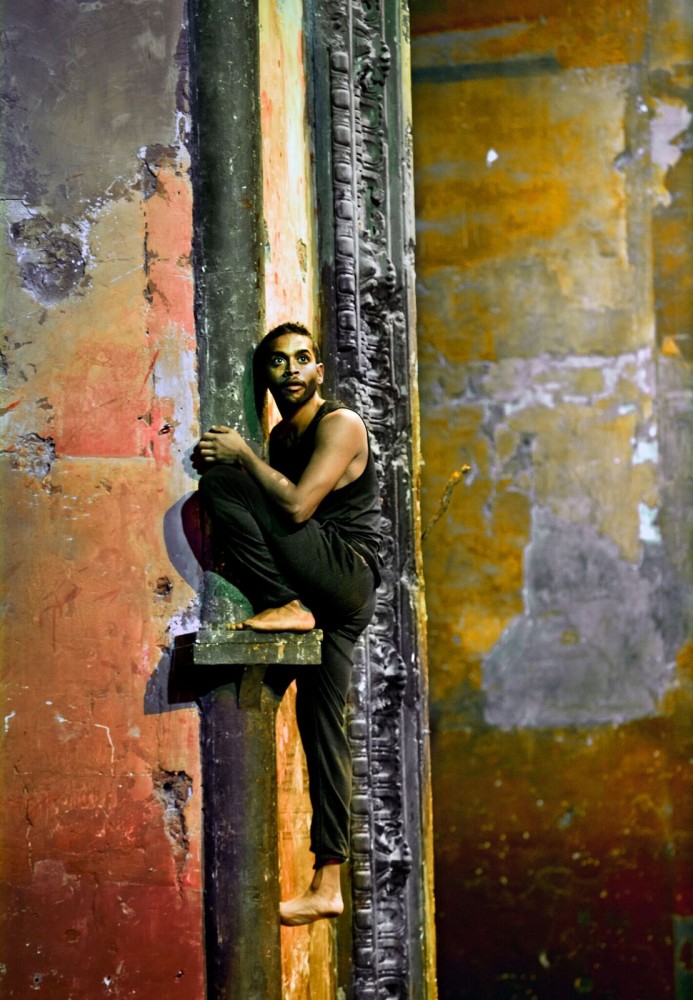by Carole Di Tosti
A dance of love and antagonistic struggle by Young Woman and Pony William opens the intriguing U.S. Premiere of Knives in Hens by David Harrower, concisely directed by Paul Takacs. The characters’ movements which are embracing and forceful as they make love reveal the tenor of the struggle between men and women in this elusive drama about country folk, their yearnings, aspirations and mores.
Harrower’s writing is both metaphoric and poetic. The plot development becomes motivated by his characters, the husband and wife, Pony (Shane Taylor is paternalistic yet nurturing) and Young Woman (Robyn Kerr maintains an intense and revelatory portrayal throughout). Pony and Young Woman reveal the subtleties of gender archetypes which Harrower later reverses with an interesting dynamic.
Initially, we understand that Pony is the dominant head-of-the household. Young Woman is his underling and the receptor of his grand wisdom which reveals great gaps in logic. Where Pony is a materialist, Young Woman’s soul is open to another realm of God’s beauty. She is always questioning the variations of perspective which God’s light brings to reality.
Pony and Young Woman differ in their basic comprehension of life and it is apparent that Young Woman is open and flexible to everything around her while Pony is content with his determinism. His point of view offers little variation or uniqueness. Both appear to be uneducated in the finer aspects of culture. Harrower’s characters may appear simplistic but they are complex and multi-layered because of their unconscious impulses and sensitivities revealed in their dreams.
What begins as a husband and wife team who plow, take care of the horses and live off the land complicates with the introduction of another character, the miller Gilbert Horn, finely portrayed with thoughtful, on-point sensitivity by Devin E. Haqq. When Pony orders Young Woman to take the grain to Gilbert Horn, the miller, whom the superstitious villagers despise, she fears their encounter. Pony pressures her because he allegedly is helping one of the mares give birth. As it turns out, Pony spends time in the barn to have affairs and “plow other fields,” his euphemism for women whom he treats as his eminent domain.
Young Woman’s encounter with Gilbert Horn is fateful. She treats him hatefully and her fear prompts her to leave. Indeed, the village gossip about Horn relates that he murdered his wife and child. Young Woman’s return to Pony without the flour is unacceptable. Pony spurs her to return to get the flour from Gilbert Horn. It is the second encounter that seals Young Woman’s bond with Horn and her transformation as a human being.
During the second meeting, Horn evokes her curiosity about writing and tempts her with a question. Her reply opens up another perspective and new world, one of freedom and pride in self. When he offers her the pen to write about everything she sees, as a way to identify who she is and achieve a feeling of personhood, she cannot resist. He also reveals that the woman’s laughter Young Woman heard in the stable was a woman from the village, one of the many that Pony has been with surreptitiously. It is at this point that Young Woman’s mind and soul begin their transformation. And Gilbert Horn, whether through intention or his own hope to change, seeks a comparable evolution.
The director’s staging is impeccable and concise. The sets designed by Steven C. Kemp are not only functional, but they are evocative and cleverly realized to enhance the rustic setting. These elements are pitted against the miller’s technology of the mill and the writing implement offered to Young Woman. Thus, the conflict becomes released through the set and enhances the revelation of the theme of freeing oneself through self-expression.
The hauntingly lovely music (Toby Jaguar Algya-sound design) during the movement sequences heightens the symbolism of the lovers’ dance. Additional kudos go to costume designer Sydney Gallas. I especially thought Young Woman’s simplistic costumes were well conceptualized both during her daily activities and her night scenes.
A few comments give attention to the accents. In some instances, clarity was sacrificed to convey the demographic of Pony and Young Woman. It was a problem during the rapid discourse between them. On the other hand Gilbert Horn’s speech was clear. Clarity should not be sacrificed to convey character.
Photos: Carol Rosegg
Knives in Hens is fascinating. Its themes are timeless. The production runs 90 minutes at
59E59 Theaters with no intermission until 12 November. Tickets: 212-729-4200, member E-line: 646-892-7999


